Abstract
OBJECTIVES: This study tested the hypothesis that the degree to which local government is metropolitanized is associated with mortality rates for African Americans and with residential segregation, which has itself previously been shown to be positively associated with mortality among African Americans. METHODS: One hundred fourteen US standard metropolitan statistical areas were examined. The primary dependent variable was the age-adjusted, race- and sex-specific all-cause mortality rate, averaged for 1990 and 1991. The 2 primary independent variables were residential segregation, as measured by the index of dissimilarity, and metropolitanization of government, as measured by the central city's elasticity score. RESULTS: Mortality rates for male and female African Americans were lower in metropolitan statistical areas with more metropolitanized local governments and lower levels of residential segregation. Mortality for male and female Whites was not associated in either direction with residential segregation. White male mortality showed no association with level of metropolitanization, but lower White female mortality rates were associated with less metropolitanization. CONCLUSIONS: This study suggests the need for further research into whether policy changes in areas not traditionally thought of as "health policy" areas can improve the health of urban minorities.
Full text
PDF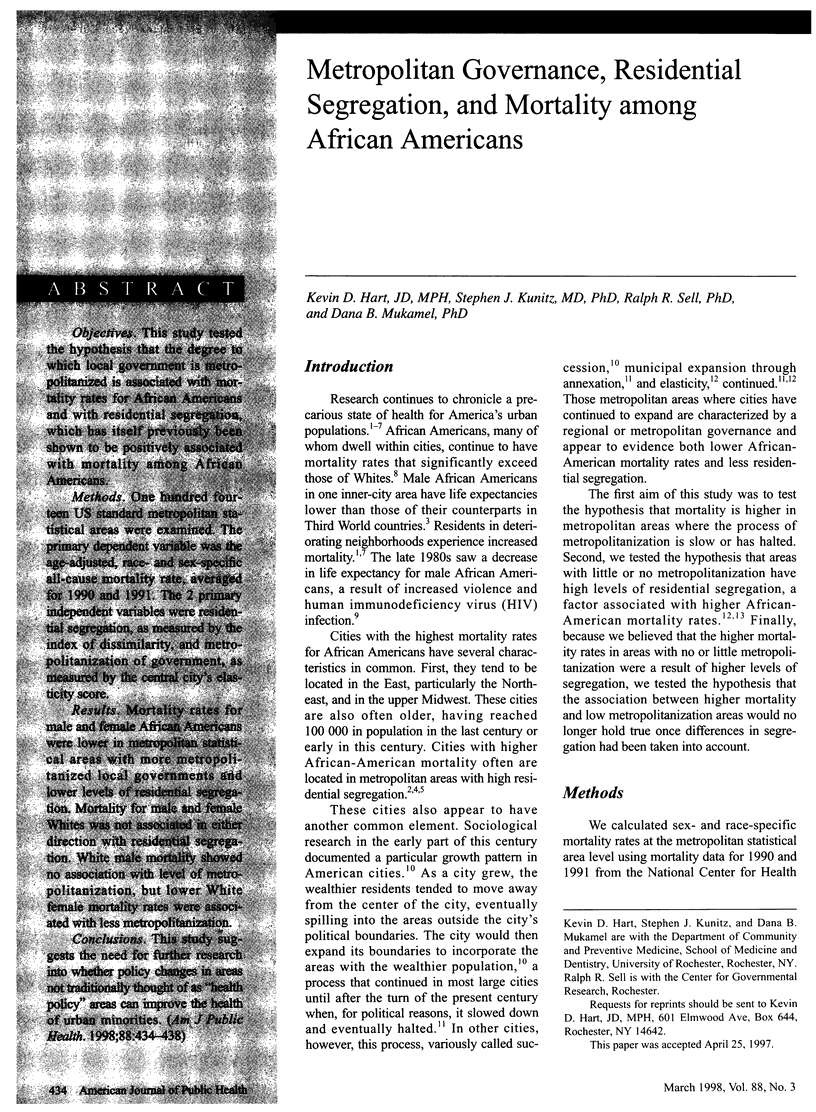
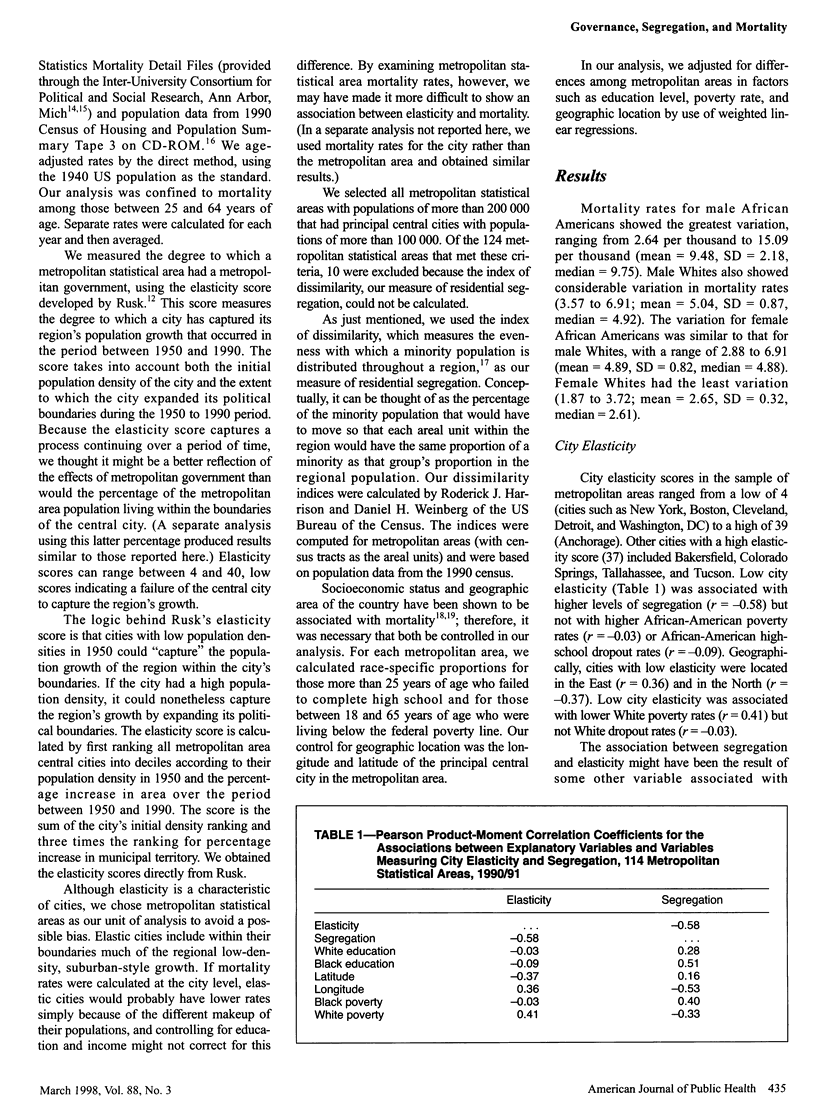
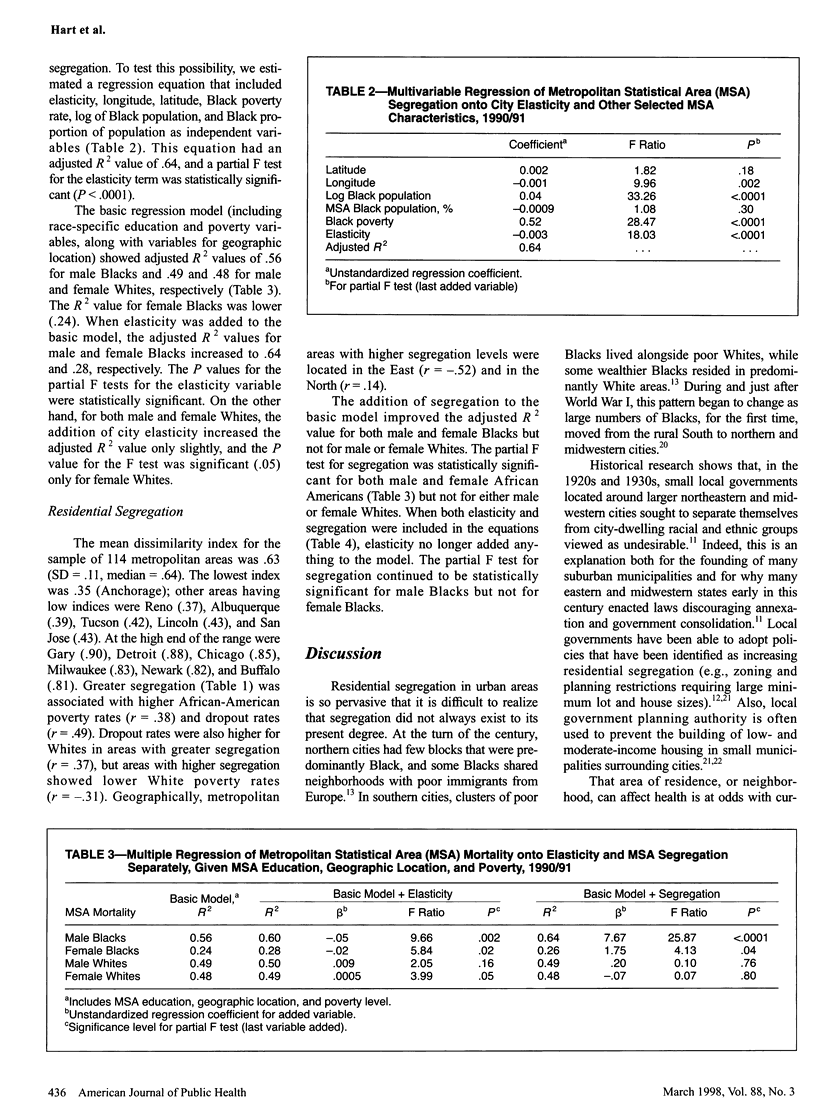
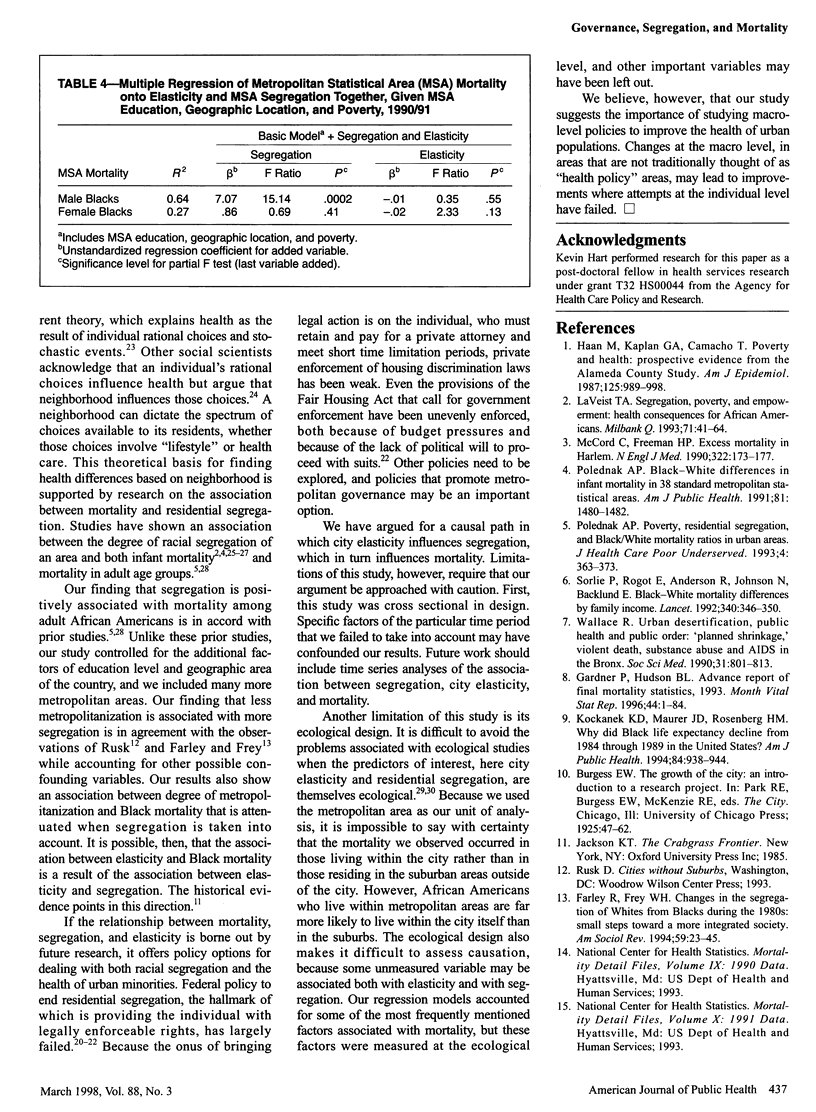
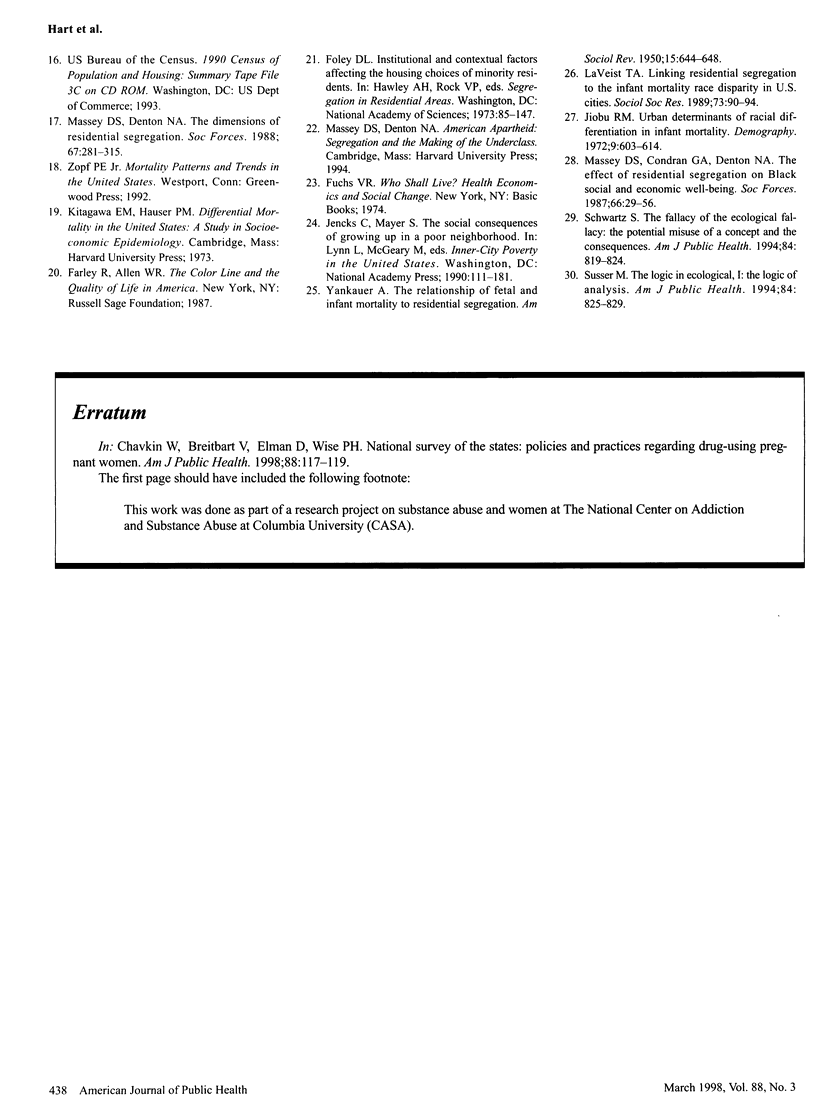
Selected References
These references are in PubMed. This may not be the complete list of references from this article.
- Haan M., Kaplan G. A., Camacho T. Poverty and health. Prospective evidence from the Alameda County Study. Am J Epidemiol. 1987 Jun;125(6):989–998. doi: 10.1093/oxfordjournals.aje.a114637. [DOI] [PubMed] [Google Scholar]
- Jiobu R. M. Urban determinants of racial differentiation in infant mortality. Demography. 1972 Nov;9(4):603–615. [PubMed] [Google Scholar]
- Kochanek K. D., Maurer J. D., Rosenberg H. M. Why did black life expectancy decline from 1984 through 1989 in the United States? Am J Public Health. 1994 Jun;84(6):938–944. doi: 10.2105/ajph.84.6.938. [DOI] [PMC free article] [PubMed] [Google Scholar]
- Laveist T. A. Segregation, poverty, and empowerment: health consequences for African Americans. Milbank Q. 1993;71(1):41–64. [PubMed] [Google Scholar]
- McCord C., Freeman H. P. Excess mortality in Harlem. N Engl J Med. 1990 Jan 18;322(3):173–177. doi: 10.1056/NEJM199001183220306. [DOI] [PubMed] [Google Scholar]
- Polednak A. P. Black-white differences in infant mortality in 38 standard metropolitan statistical areas. Am J Public Health. 1991 Nov;81(11):1480–1482. doi: 10.2105/ajph.81.11.1480. [DOI] [PMC free article] [PubMed] [Google Scholar]
- Polednak A. P. Poverty, residential segregation, and black/white mortality ratios in urban areas. J Health Care Poor Underserved. 1993;4(4):363–373. doi: 10.1353/hpu.2010.0094. [DOI] [PubMed] [Google Scholar]
- Schwartz S. The fallacy of the ecological fallacy: the potential misuse of a concept and the consequences. Am J Public Health. 1994 May;84(5):819–824. doi: 10.2105/ajph.84.5.819. [DOI] [PMC free article] [PubMed] [Google Scholar]
- Sorlie P., Rogot E., Anderson R., Johnson N. J., Backlund E. Black-white mortality differences by family income. Lancet. 1992 Aug 8;340(8815):346–350. doi: 10.1016/0140-6736(92)91413-3. [DOI] [PubMed] [Google Scholar]
- Susser M. The logic in ecological: I. The logic of analysis. Am J Public Health. 1994 May;84(5):825–829. doi: 10.2105/ajph.84.5.825. [DOI] [PMC free article] [PubMed] [Google Scholar]
- Wallace R. Urban desertification, public health and public order: 'planned shrinkage', violent death, substance abuse and AIDS in the Bronx. Soc Sci Med. 1990;31(7):801–813. doi: 10.1016/0277-9536(90)90175-r. [DOI] [PubMed] [Google Scholar]



